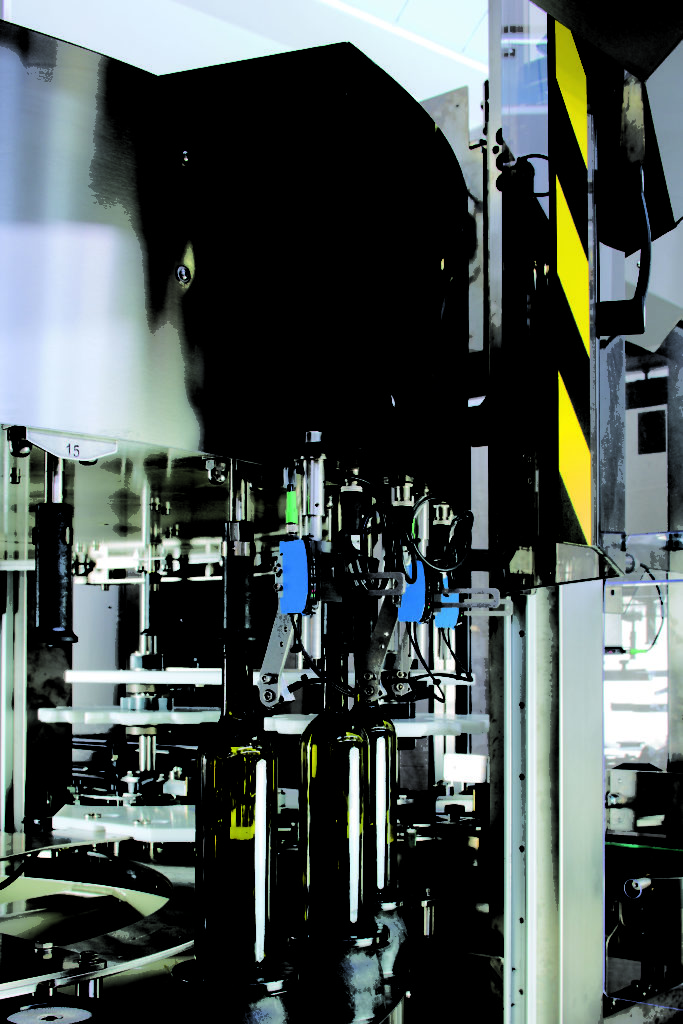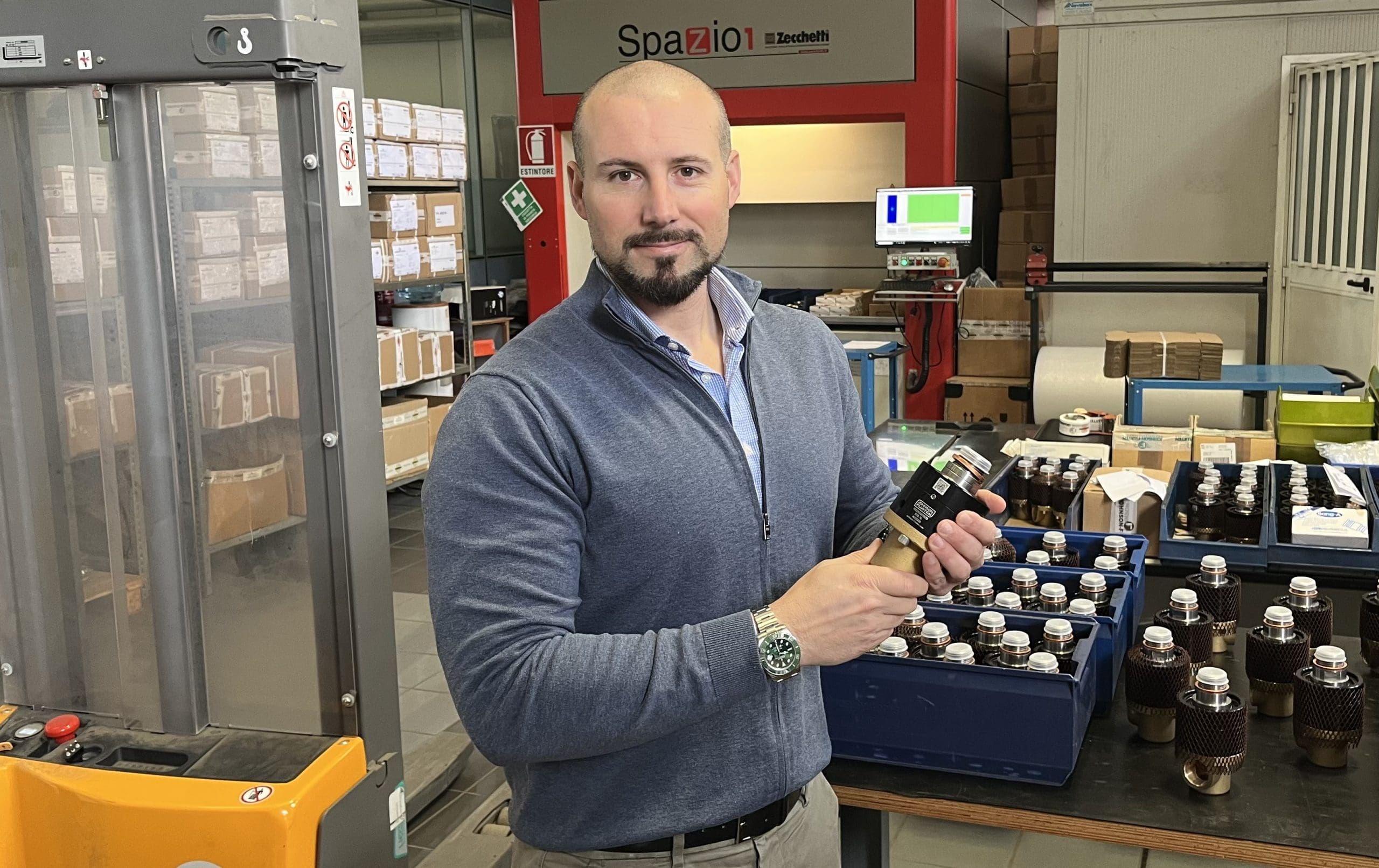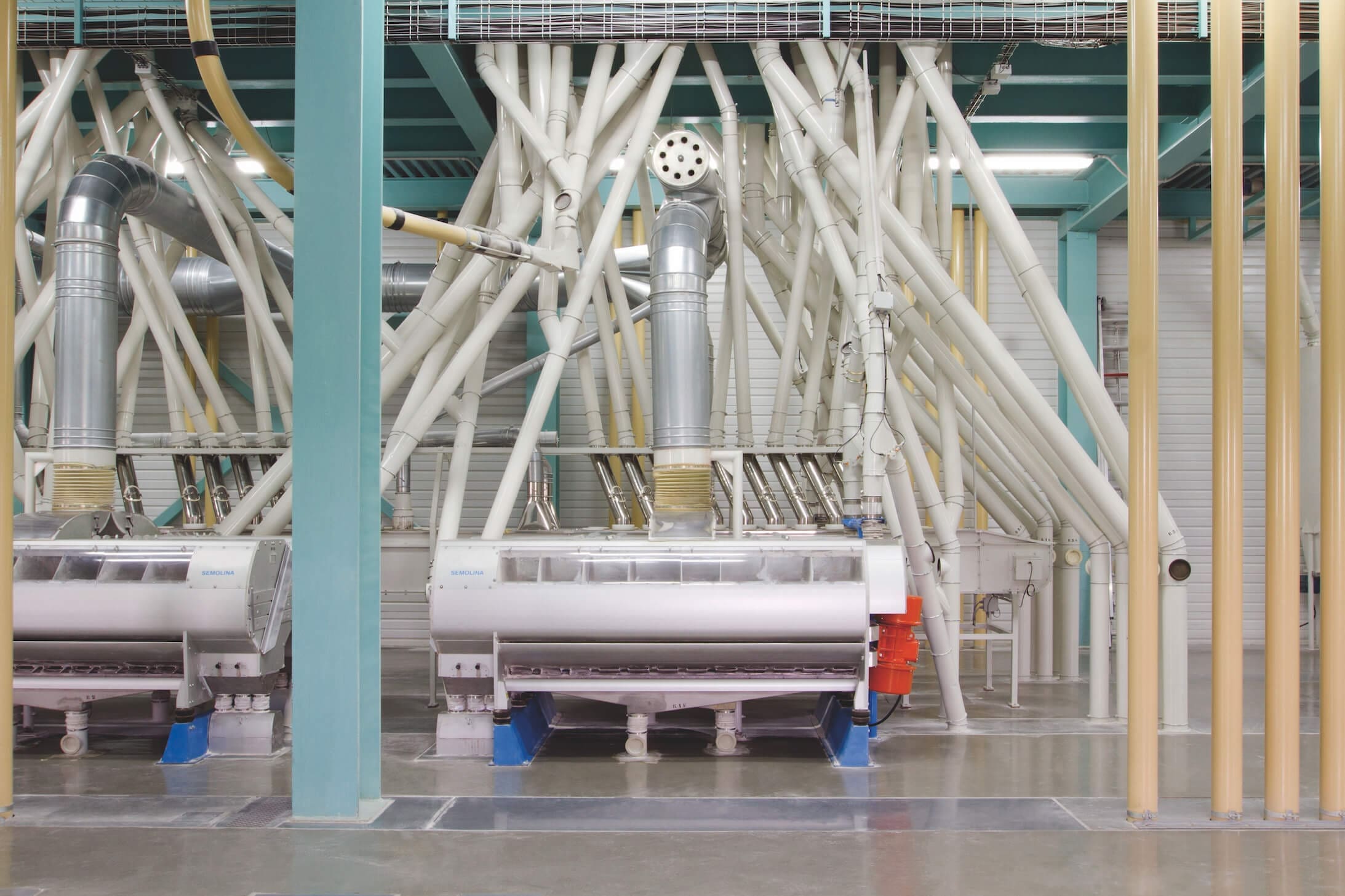The evolution of the Makro Labelling patented optical guide system includes the lightness of carbon fibre and a line scan camera to centre the labels.
Launched on the market in 2014, the Follower, a patent from Makro Labelling (one of the labelling sector’s most innovative companies) is a bottle guide module mounted on the labeller enabling the labels to be applied in precise positions with respect to a reference point on the bottle. This is achieved using drastically fewer sensors (1 compared to 10 for example) than in traditional systems, allowing the end customer to significantly reduce format change times.
Already available on the market, the new version of Follower introduces two important innovations – carbon fibre and a line scan camera.
The first is the result of meticulous research into materials and their reaction to stresses in various directions. “We noticed that above certain production speeds, the tracking action of the Follower’s mechanical structure was subjected to accelerations and stresses which affected both the structure itself and the machine in the form of vibrations and in some cases bending. This limited the attainable speed and in some cases increased the number of guide sensors required”, explains Simone Marcanton, automation department manager.
The Follower’s mechanical structure was therefore completely redesigned and made from carbon fibre using a new carbon production technique enabling the fibres to be arranged in such a way that the resulting structure resists stress and bending in precise directions. Structural bending is reduced to a quarter of the bending affecting the steel and the total weight is a seventh of the previous structure. This has an enormous impact on the application – almost doubling the speed achievable for the same number of sensors. The structure does not bend and the behaviour is 100% stable.
The second is the continuation of a project begun more than two years ago in collaboration with Studio Progetti Automation. The idea is based on replacement of the guide sensor with a line scan camera able to take very rapid linear photographs (images of, for example, 1×2048 pixels). The camera is installed on the Follower and follows the bottle as it rotates through 360° around its own axis, taking a large number of photographs. At the end of the process, the camera will have taken a certain number of photographs which can be placed side by side to form a global image showing the flat surface of the bottle precisely.
“This is a revolutionary type of system as it enables the bottle to be seen as if “exploded”, cut open on a horizontal plane. The image obtained is distortion-free as each individual frame is always taken at the same distance from the bottle and on the same axis. This image is conveyed to an industrial PC which analyses it, looking for the frame showing the notch”, continues Simone Marcantoni.
The result of the analysis is then passed to the system controlling the plates on the labeller which position the bottle appropriately. The image produced by linear scanning is already completely distortion-free when it reaches the viewing software and can therefore be analysed to identify the notch. Most of the complexity of traditional systems involving “straightening” and gluing of various images is thus eliminated at the root. By choosing the most appropriate camera, an image of the full height of the bottle can be obtained. Whether the notch to be identified is at the top or bottom, it can therefore be “seen” by the camera without requiring additional movements, thus greatly simplifying format change.
“The design of Makro Labelling machines has always been based on the ability to be modular, flexible and easy to use. It is equally important for us to maintain a high level of technological innovation and we therefore invest considerable resources in research to identify solutions which are useful, efficient and improve our customers’ productivity. The Follower represented a revolution in the labelling sector, but as with all innovations, some details needed improving. We therefore continued our research to make this system even more precise and lighter, with excellent positive implications on our customer’s productivity” concludes Massimo Manzotti, President and Sales Director of Makro Labelling.






